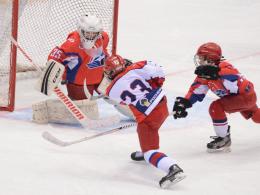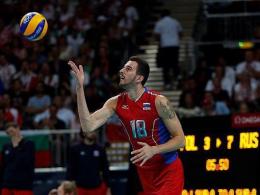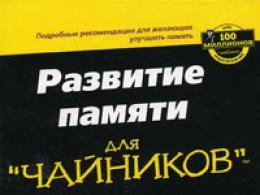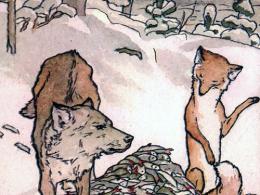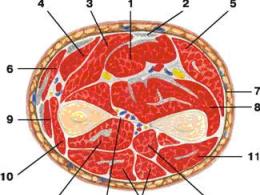Contents: What horses cry about. - Are you having an argument? - I was surprised. - About what? Why do horses cry?
Every time the narrator descended from the village hill onto the meadow, it was as if he found himself in the world of his distant childhood - in the world of grasses, dragonflies, butterflies and, of course, horses. He often took bread with him and fed the horses, and if he didn’t have bread with him, he still stopped near them, patted them on the back, stroked them, or even just talked to them.
Horses aroused in him, a villager, the most contradictory feelings - from excitement and joy to pity and even guilt in front of them. The groom Mikolka sometimes did not show up to them day and night, and around the stake to which each horse was tied, not only the grass - the turf was gnawed. The poor animals were constantly languishing, they were tormented by midges.
Life was not easy for the poor people, so no one could pass them by indifferently.
And this time the man ran towards the horses. I saw my favorite Klara, or Ryzhukha, as he easily called her.
This horse was from the Mezenok breed, medium-sized animals, hardy and very unpretentious. At four or five years old, her back was already broken, her belly had noticeably sagged, and her veins began to swell. And yet, she stood out favorably among her relatives in that she retained her appearance and cheerful character. Usually, when she saw her friend, she made a welcoming circle of joy around the peg to which she was tied.
But today something happened to her. When the man appeared, she stood motionless, as if petrified. He thought that the filly either got sick or forgot him while working in the distant hayfield. He began to break bread for her from a large loaf, but she turned her head away.
The man pulled the horse towards him by its thick bangs and saw large tears in the animal’s eyes. The man forcibly calmed her down. I started asking what happened. The redhead said that they, the horses, were having an argument about a horse's life. That's what she said.
In a distant hayfield, she met an old mare, with whom she shared a mower. When they were completely unbearable, Zabava cheered her up with her songs. The redhead said that she had never heard anything like this before. These songs said that in former times horses were called nurses, groomed and caressed, and decorated with ribbons. The redhead asked Zabava if she was comforting her. The neighbor replied that she heard these songs from her mother, and she heard them from hers.
When Ryzhukha tried to tell the other horses about this, she was laughed at. She looked hopefully at the man and asked if the old mare had deceived her.
The interlocutor could not stand the horse’s direct gaze and looked away to the side. It seemed to him that inquisitive horse eyes were looking at him from all sides.
It is unknown how long this silent torture lasted. But the man was sweating from head to toe.
No, the old mare did not deceive. There were times when people lived and breathed the horse, they fed it the last piece, or even the last crust of bread. We, they say, somehow. And what happened in the evenings, when the worked-out horse returned home! The whole family greeted her with love and looked after her nurse. And how many times during the night the owners got up to check on their treasure!
After all, you can’t go anywhere without a horse—neither in the field nor in the forest. And you can’t go out properly without it. After all, Russian horseback riding on Maslenitsa has nothing to compare with.
The peasant's son's first toy was a wooden horse. The horse looked at the child from the roof of his home, his mother talked and sang about him, he decorated his betrothed’s spinning wheel with the horse, and prayed to him. And a horse's horseshoe - a sign of happiness - greeted every porch. And what passions boiled over the horse in the first collective farm years!
But what can we say about men if the narrator, even as a university student, could not indifferently pass by Kar-ka, the breadwinner of his family. In 1947, the student returned to the village. Everywhere there was hunger, desolation, in the houses they were crying for those who had not returned from the war, and as soon as he saw the first horse, he immediately remembered his Karka.
The old groom replied that Karka was no more, he gave his soul to God on the forest front. After all, not only people fought in this war, but also horses.
Pushkin's prophetic Oleg probably lives in each of us. So the man who told this story tried to find the remains of his horse, being in those places where logging took place during the war.
But there was no logging point for a long time, and dense thickets of Ivan-tea grew in place of the skating tract, and of course, the search did not yield any results...
...The redhead continued to look at the man with hope, and all the other horses looked with hope and prayer. Material from the site
And the man assumed reckless daring and said that he would stop being sour and filling his head with all sorts of nonsense. It's better to bite the bread while you're gnawing. Following this, he threw a piece of bread near Ryzhukha, dressed the rest of the horses, said some nonsense and went home.
What else could he answer to these poor fellows? To say that the old mare did not deceive and the horses really had happy times?
He crossed the lake and came out to the old boundary, which always delighted him with its variety of herbs. But now the man saw nothing. All his hearing was turned back. The man hoped that he would hear the usual crunch and crunch of the grass in the meadow. But not the slightest sound came from there.
And the man realized that he had done something irreparable. He deceived Ryzhukha and all these unfortunate nags. He will never again have the sincere and trusting relationship with Ryzhukha that he had until now.
And a heavy horse melancholy fell upon him. Soon he seemed to himself an absurd, outdated creature from the same breed of horse.
Didn't find what you were looking for? Use the search
On this page there is material on the following topics:
- Abram's summary of what horses cry about
- f abramov what horses cry about summary
- P.A. Abramov - what horses cry about
- summary of the story of what horses cry about
F. Abramov - story “What Horses Cry About.” The plot of the story is simple: one day the narrator came to the horse Ryzhukha, his favorite, and she sadly told him the following story. During the summer haymaking, she heard from an old mare that there used to be a time when people cared for horses and valued them. But when Ryzhukha began to sing this song in her field, the other horses did not believe her and asked her to shut up. And then she turned to the narrator with a question whether it was true that there were such times in the world. And he didn’t know what to answer her. After all, a horse has always been a hope and support, a breadwinner in a peasant family. She was with the owner not only at work, but on holidays, during Maslenitsa festivities, when “colorful, patterned arcs danced like rainbows in the winter air, the July heat came from polished copper harnesses, and bells, bells are the delight of the Russian soul...”. The first toy of a peasant son was always a wooden horse. A brave, courageous horse was the constant companion of the hero in Russian epics and fairy tales. And on the fronts of all wars, horses fought, many died. Finally, in Russian literature, we associate the image of a “pink horse” with the first dreams of the best time of our lives - youth. How do people feel about them now? A drunk groom often forgets about them, almost all the animals are hunched over from work, the skin hangs in tatters, and their eyes fester. What did they receive in gratitude for their work? Only indifference. The man treated them unfairly. So the horses cry from resentment. The writer in this story condemns the callousness, indifference and selfishness of people towards our faithful friends and helpers - horses.
Searched here:
- what do horses cry about summary
- summary of what horses cry about
- a short summary of what horses cry about
“Every time I went down from the village hill to the meadow, it was as if I again and again found myself in my distant childhood - into the world of fragrant herbs, dragonflies and butterflies and, of course, into the world of horses that grazed on a leash, each next to its own cola
I often took bread with me and fed the horses, and if there was no bread, I still stopped near them, patted them in a friendly manner on the back, on the neck, encouraged them with a kind word, patted them on their warm velvet lips, and then for a long time, almost the whole day, I felt in the palm of your hand is an incomparable horse scent.”
Horses “brought joy to my peasant heart... But most often they evoked in me a feeling of pity and even some kind of incomprehensible guilt towards them.
The groom Mikolka, always drunk, sometimes did not show up to them day or night, and around the stake, not only the grass - the turf was gnawed and knocked black. They were constantly languishing, dying of thirst, and were tormented by vileness...”
Village women also feed the horses.
One day the narrator notices his favorite Klara, or Ryzhukha, among other horses.
She was from the breed of “so-called mezenoks, small, unpretentious horses, but very hardy and unpretentious, well adapted to the difficult conditions of the North.”
The hard work had left her crippled. But still, “Ryzhukha was a clean filly, and besides, she still retained her cheerful, cheerful character, the restiveness of her youth.”
She always joyfully greets her storyteller friend. But this time he stands petrified at his stake. Doesn't even react to bread.
The hero sees tears on her face. “Large, bean-sized, horse tears.”
-What happened to you? - asks the man.
And it’s as if he hears the horse’s answer.
- I cry for a horse's life. I told them that there were times when we horses were pitied and protected more than anything in the world, and they laughed at me and began to mock me...
It turns out that at a distant mowing, from which Ryzhukha had just returned, she met an old mare, with whom she went together in a horse-drawn mower.
The old woman Zabava consoled her young friend with songs during hard labor.
From these songs, Ryzhukha learned that “there were times when we horses were called nurses, groomed and caressed, and decorated with ribbons.”
The other horses didn’t believe Ryzhukha’s songs: “Shut up! And it’s so sickening!”
“The red-haired woman with hope, with a prayer, raised her huge, still wet, sad eyes to me, in the violet depths of which I suddenly saw myself - a small, tiny man.”
Redhead and other horses ask the man to tell the truth.
“Everything, the old mare said everything correctly, she didn’t lie about anything. There were, there were such times, and there were just recently, in my memory, when a horse breathed and lived, when it was fed the most delicious morsel, or even the last crust of bread - we somehow manage, we even have a hungry belly We'll wash ourselves until the morning. We are no strangers to this. And what happened in the evenings, when the horse, having worked hard during the day, entered its alley! The whole family, young and old, ran out to meet her, and how many affectionate, how many grateful words she listened to, with what love they unharnessed her, nursed her, took her to watering places, scrubbed her, cleaned her!”
The horse was the main support and hope of the entire peasant life. And Russian horse-riding festivities at Maslenitsa!
“The peasant’s son’s first toy was a wooden horse. The horse looked at the child from the roof of his father’s house, the mother sang and told about the hero horse, about the burka, the horse, as he grew up, decorated the spinning wheel for his betrothed... And a horse’s horseshoe - a sign of long-awaited peasant happiness - greeted you almost every porch. Everything is a horse, everything is from a horse: the whole life of a peasant, from birth to death...”
Karko’s favorite horse, as the hero says, worked in the logging camp throughout the war. And on Victory Day, collective farmers brought down heavy logs on him and sent him into the festive cauldron.
During the lesson, using the example of the story of F.I. Abramov’s “What Horses Cry About” will learn attentive, thoughtful reading; get acquainted with the features of journalistic style; will touch upon the moral problem of a person’s responsibility to all living things that surround him.
Topic: From the literature of the 20th century
Lesson: Story by F.A. Abramov “What horses cry about”
Fedor Aleksandrovich Abramov (Fig. 1) was born on February 29, 1920 in the distant northern village of Verkolka, fenced off from the city by endless forests, swamps, and lakes.
Rice. 1. Photo. F. Abramov ()
Is it somehow late or early?
But in the Abramov family
A son appeared.
He was born with a temper,
Nicknamed Fedor.
He’s coming to Pinega with buckets
I went for water.
Clean water
Lightning flashes,
Siverko, snowstorms -
The years have flown by.
The childhood and youth of the future writer, spent in the distant taiga wilderness, were not easy. A large, large, early orphaned family. The father died when the boy was not even two years old. A difficult, half-starved childhood and youth strengthened character, instilled hard work, will, and perseverance. And the vast Siberian expanses and the amazing beauty of nature taught him a careful, reverent attitude towards all life on Earth.
Only at the age of eighteen did the future writer see the city and the railway. He came to Leningrad and entered the philological faculty of the university. The village youth was wary of the crowded city, where people live in the same house and do not know each other.
The further fate of F.A. Abramova was inseparable from the fate of Russia. Together with his people, he went through the Great Patriotic War, after the victory he returned to Leningrad, completed his studies, taught at the university, and became a writer. But, perhaps, he was never quite able to get used to life in a big city. That is why most of the author’s works are devoted to rustic theme.
The writer Abramov notes the special beauty of the horse and admires this kind and intelligent animal. However, this admiration is mixed with a feeling of pity for the horses and even guilt in front of them, because the life of a village horse is tragic: “The groom Mikolka, always drunk, sometimes did not show up to them day or night, and around the stake, not only the grass - the turf was gnawed and beaten black. They were constantly languishing, dying of thirst, they were tormented by the midges - on quiet evenings, mosquitoes and midges hovered over them like a gray cloud, like a cloud.
In general, what can I say, life was not easy for the poor people.”
In the story, Fyodor Abramov endows the horse with human character traits. Together with the narrator, the main character of the story is the collective farm horse Ryzhukha. “And yet Ryzhukha stood out favorably among her relatives. Some of them were simply hard to look at. Some kind of slovenly, drooping, with unfaded, ragged skin, with festering eyes, with some kind of dull humility and doom in their gaze, throughout their dejected, hunched figure. But Ryzhukha is not. Redzhukha was a clean filly, and besides, she still retained her cheerful, cheerful character, the restiveness of her youth.”
To emphasize the inextricable connection between man and animal, Abramov shows the friendship between them, and even uses artistic exaggeration. The redhead is endowed with the ability to speak. And this gift manifests itself at the moment when the horse is in the hardest time, when he is tormented by the question: “Were there times when we, horses, lived well?”
This question made the narrator think. At this stage of the story, Abramov’s gift as a publicist clearly manifests itself. Here narration gives way to reasoning:
“There were, there were such times, and there were even recently, in my memory, when a horse breathed and lived, when it was fed the most delicious morsel, or even the last crust of bread - we somehow survive, we are with the hungry We'll sweat our belly until the morning. We are no strangers to this. And what happened in the evenings, when the horse, having worked hard during the day, entered its alley! The whole family, young and old, ran out to meet her, and how many affectionate, how many grateful words she listened to, with what love they unharnessed her, nursed her, took her to watering places, scrubbed her, cleaned her! And how many times during the night did the owners get up to check on their treasure!”
note for this passage. It clearly shows features of journalistic style:
emotionality is conveyed by exclamatory sentences;
Abramov talks about the role of the horse in the life of the village:“The main support and hope of the entire peasant life, because without a horse you can’t go anywhere: you can’t go into the field or into the forest.”

Rice. 2. Photo. Horse on the roof of the house ()
“The peasant’s son’s first toy was a wooden horse. The horse looked at the child from the roof of his father’s house, the mother sang and told about the hero horse, about the burka, the horse, as he grew up, decorated a spinning wheel for his betrothed, he prayed to the horse - I don’t remember a single shrine in my village without Yegori the Victorious . And a horse’s horseshoe - a sign of long-awaited peasant happiness - greeted you on almost every porch” (Fig. 2).
In the author's discussion about the great role of the horse in the life of a Russian person, the reader is struck by another tragic memory. About the horse Karka, who at one time, like the sun, illuminated the hard life of the early orphaned large Abramov family. This horse, like other horses, went through the war with the people and did a lot for the Victory.
“Your Karka is gone,” the old groom answered me. - On the forest front I gave my soul to God. Do you think only people fought in this war? No, the horses also forged victory, and how..."
In his discussion about horses, Abramov recalls the work of A.S. Pushkin's "Song of the Prophetic Oleg". In this poem, the horse, the prince's faithful companion, is unjustly expelled and forgotten. In the same way, the former respect for horses has been unfairly forgotten. And now they look at you and me with hope and prayer from the pages of the story:
“...The redhead still looked at me with hope and prayer. And other horses watched. And it seemed that the entire space in the meadow, under the mountain, was filled with nothing but horse eyes. Everyone, both the living ones, on a leash, and those who had been gone for a long time - the entire horse kingdom, living and dead, was now asking me.”
The author could not explain why the happy times for horses were over. But you and I understand that the reason is that man no longer needs a horse. Combine harvesters and tractors operate on collective farm fields, and tanks have replaced cavalry in the army. Instead of carriages there are cars and trains. Man learned to live without a horse, and the animal immediately lost attention, care, and love.
At one time, the French writer Antoine de Saint-Exupéry wrote a phrase in the fairy tale “The Little Prince” that became a catchphrase: “We are responsible for those we have tamed.” . Following Exupery, Abramov also reminds us of responsibility for all life on Earth, because if man is the king of nature, then all his subjects should feel under his protection.
Bibliography
- Korovina V.Ya. Didactic materials on literature. 7th grade. — 2008.
- Tishchenko O.A. Homework on literature for grade 7 (for the textbook by V.Ya. Korovina). — 2012.
- Kuteinikova N.E. Literature lessons in 7th grade. — 2009.
- Korovina V.Ya. Textbook on literature. 7th grade. Part 1. - 2012.
- Korovina V.Ya. Textbook on literature. 7th grade. Part 2. - 2009.
- Ladygin M.B., Zaitseva O.N. Textbook-reader on literature. 7th grade. — 2012.
- Kurdyumova T.F. Textbook-reader on literature. 7th grade. Part 1. - 2011.
- FEB: Dictionary of literary terms ().
- Dictionaries. Literary terms and concepts ().
- Explanatory dictionary of the Russian language ().
- Abramov F.A. “What do horses cry about” ().
- Abramov F.A. Biography and creativity ().
Homework
- Read the story by F.A. Abramov “What horses cry about.” Create a story outline.
- What moment of the story is the climax?
- What does the author make you think about?
- What works on a similar topic have you read?
- Can a similar story be addressed to other animals? Which one? Justify your answer.
Fedor Abramov
What do horses cry about?
Every time I went down from the village hill to the meadow, it was as if I again and again found myself in my distant childhood - into the world of fragrant herbs, dragonflies and butterflies and, of course, into the world of horses that grazed on a leash, each near its own stake .
I often took bread with me and fed the horses, and if there was no bread, I still stopped near them, patted them in a friendly manner on the back, on the neck, encouraged them with a kind word, patted them on their warm velvet lips, and then for a long time, almost the whole day, I felt in the palm of your hand there is an incomparable horse scent.
These horses evoked the most complex and contradictory feelings in me.
They excited and delighted my peasant heart, gave the deserted meadow with rare hummocks and willow bushes their own special - equine - beauty, and I could look at these kind and intelligent animals for minutes, hours, listen to their monotonous crunching, occasionally interrupted by a dissatisfied snort. , then with a short snore - dusty or inedible grass has been caught.
But most often these horses evoked in me a feeling of pity and even some kind of incomprehensible guilt towards them.
The groom Mikolka, always drunk, sometimes did not show up to them day or night, and around the stake, not only the grass - the turf was gnawed and knocked black. They were constantly languishing, dying of thirst, they were tormented by midges - on quiet evenings, mosquitoes and midges hovered over them like a gray cloud, like a cloud.
In general, what can I say, life was not easy for the poor people. And that’s why I tried as best I could to brighten up and make their lot easier. And not only me. A rare old woman, a rare woman, finding herself in a meadow, walked past them indifferently.
This time I didn’t walk - I ran to the horses, because who did I see among them today? My favorite Klara, or Ryzhukha, as I simply called her, in a seasoned way, according to the custom of those times when there were no Thunders, no Ideas, no Victories, no Shockers, no Stars, but there were Karki and Karyukha, Voronki and Voronukha , Gnedki and Gnedukhi are ordinary horses with ordinary horse names.
The redhead was of the same breed and the same blood as the other mares and geldings. From the breed of so-called mezenoks, small, unpretentious horses, but very hardy and unpretentious, well adapted to the difficult conditions of the North. And Ryzhukha got it no less than her friends and comrades. At four or five years old, her back was already broken under the saddle, her belly had noticeably sagged, and even the veins in her groins were beginning to swell.
And yet, Ryzhukha stood out favorably among her relatives.
Some of them were simply hard to look at. Some kind of slovenly, drooping, with unfaded, ragged skin, with festering eyes, with some kind of dull humility and doom in their gaze, throughout their dejected, hunched figure.
But Ryzhukha is not. Redzhukha was a clean filly, and besides, she still retained her cheerful, cheerful character, the restiveness of her youth.
Usually, when she saw me coming down from the hill, she would all get up, stand up straight, lend her ringing voice, and sometimes, as wide as the rope would allow, she would run around the stake, that is, she would make, as I called it, her welcoming circle of joy.
Today, Ryzhukha did not show the slightest enthusiasm when I approached. She stood motionless near the stake, petrified, earnestly, as only horses can stand, and was in no way, absolutely no different from the other mares and horses.
“What’s wrong with her? - I thought with alarm. - Are you sick? Forgot me during this time? (The redhead was in the distant hayfield for two weeks.)
As I walked, I began to break off a large piece from the loaf - from this, from feeding, our friendship began, but then the mare completely puzzled me: she turned her head to the side.

